Are you feeling a bit puzzled about your non-compete agreement? You're not alone! Many individuals find themselves navigating through the complexities of these contracts, which can often feel overwhelming and restrictive. In this article, we'll break down the essential elements of a non-compete agreement and clarify what it really means for your careerâso keep reading to gain a clearer understanding!

Precise Agreement Terms
A non-compete agreement outlines specific terms preventing employees from engaging in competitive activities within certain parameters. Key elements include geographic scope, typically defined by states or cities, duration often ranging from six months to two years, as well as specific industries classified (such as technology, healthcare, or finance). Additionally, the agreement should detail the definition of "competition" along with any permissible activities, such as consulting engagements or freelance opportunities that do not violate the terms. Clarity in these aspects protects both the employer's business interests and the employee's right to work, providing a legally binding framework for future professional endeavors.
Geographic Limitations
Non-compete agreements often include geographic limitations that define the areas in which a former employee is restricted from engaging in similar business activities after leaving a company. Geographic limitations aim to protect legitimate business interests, such as trade secrets and client relationships. For instance, a common practice is to set a radius of 50 miles from the company's headquarters in cities like San Francisco or New York, depending on market competition. These boundaries may also pertain to specific industries, such as technology or finance, and are typically determined by the nature of the business and the role of the employee. Clarity in these limitations not only helps enforce the agreement but also provides employees with a clear understanding of their professional boundaries post-employment, fostering an environment of fair competition.
Duration of Restrictions
Non-compete agreements often specify the duration of restrictions imposed on former employees, typically ranging from six months to two years, depending on the nature of the industry and the sensitivity of the information. In technology sectors, for instance, a duration of 12 months is common to ensure that proprietary knowledge remains protected while allowing former employees adequate time to pursue new opportunities without hindrance. Additionally, the geographical scope of these restrictions plays a critical role, often limited to regions where the company operates, such as metropolitan areas or states, to prevent unfair competition. Understanding these parameters is crucial for both employers and employees to ensure compliance and minimize potential legal disputes.
Definition of Competitors
A non-compete agreement serves to protect a company's interests by restricting employees' engagements with competitors. Competitors refer to entities within the same industry or market, directly offering similar products or services. Key sectors may include technology firms targeting software development, retail companies specializing in e-commerce, or healthcare organizations providing medical services. Definitions must consider geographic scope, specifying regions or states where the competition applies, such as Silicon Valley for tech startups or New York for financial services. Duration of the non-compete period is also essential, often lasting six months to two years after employment ends, safeguarding sensitive information like trade secrets and client lists. Clear language defining these terms ensures both parties understand the implications of the agreement.
Legal Enforceability
The legal enforceability of a non-compete agreement varies significantly by jurisdiction, impacting its validity based on varying state laws in the United States. Courts often evaluate factors such as duration (commonly ranging from six months to two years), geographic scope (restricting competition within a certain radius, typically 25 to 50 miles), and the legitimate business interests being protected (such as trade secrets, client relationships, or specialized training). Non-compete clauses must also be reasonable, ensuring they do not impose undue hardship on the employee or restrict their right to work, especially in critical industries such as technology or healthcare. Moreover, certain states, like California, have stringent prohibitions against enforcing non-compete agreements, highlighting the importance of understanding local statutes and recent court rulings before finalizing any agreement.
Letter Template For Non-Compete Agreement Clarification Samples
Letter template of non-compete agreement clarification for collaborators.
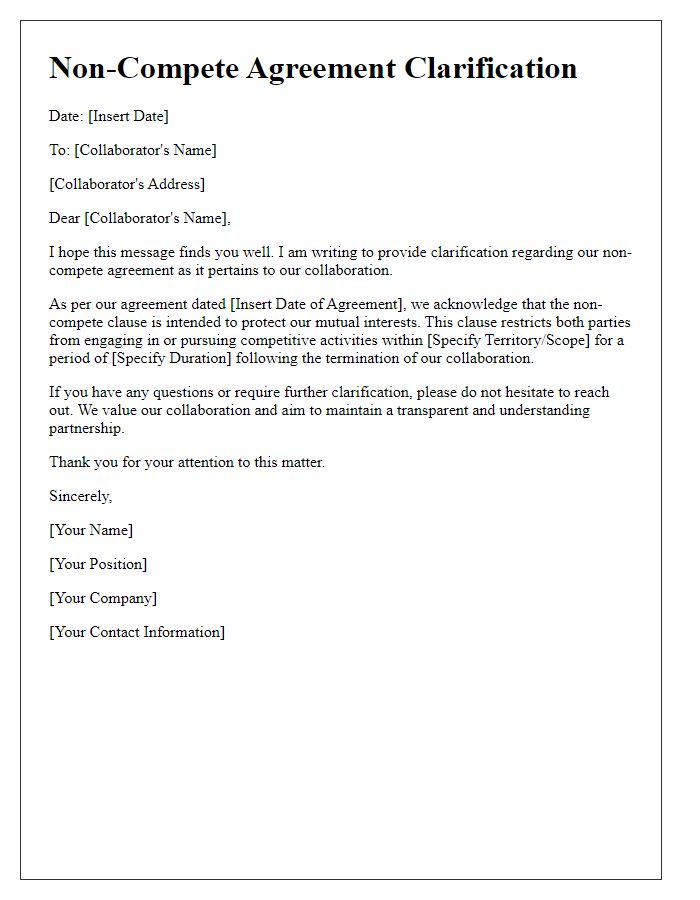
Letter template of non-compete agreement clarification for board members.
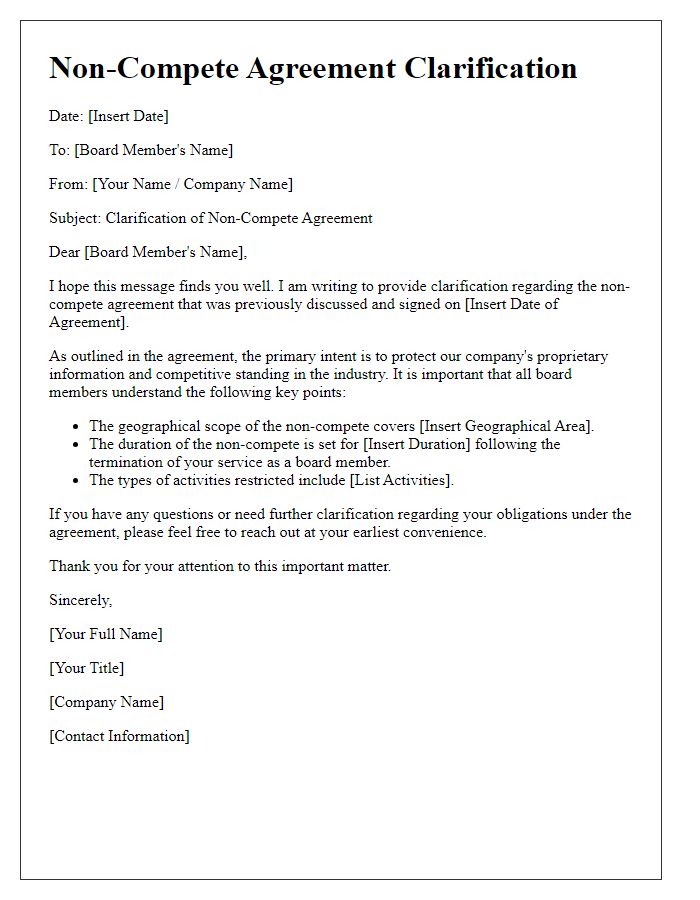

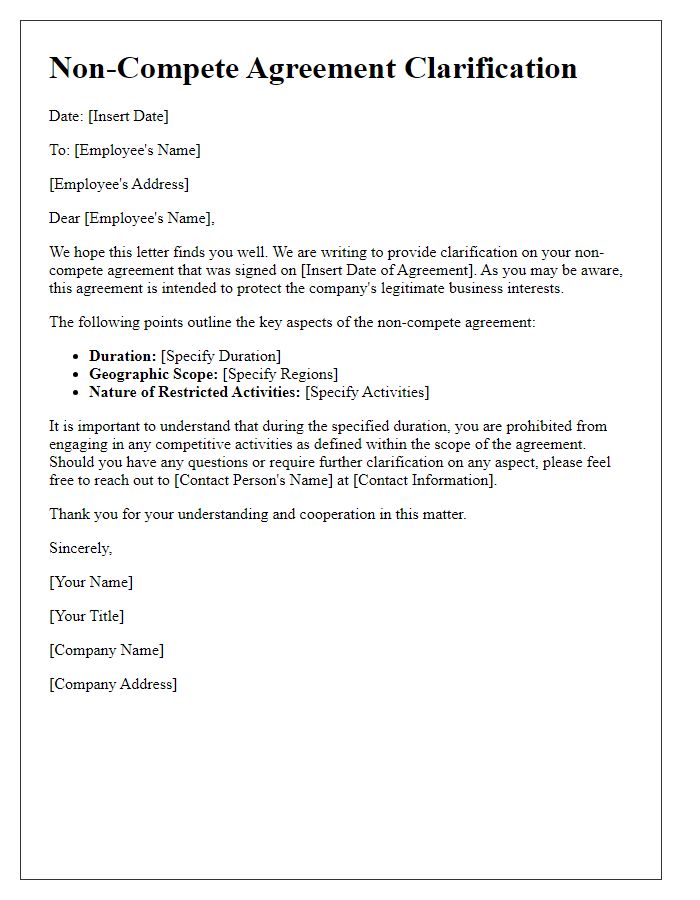
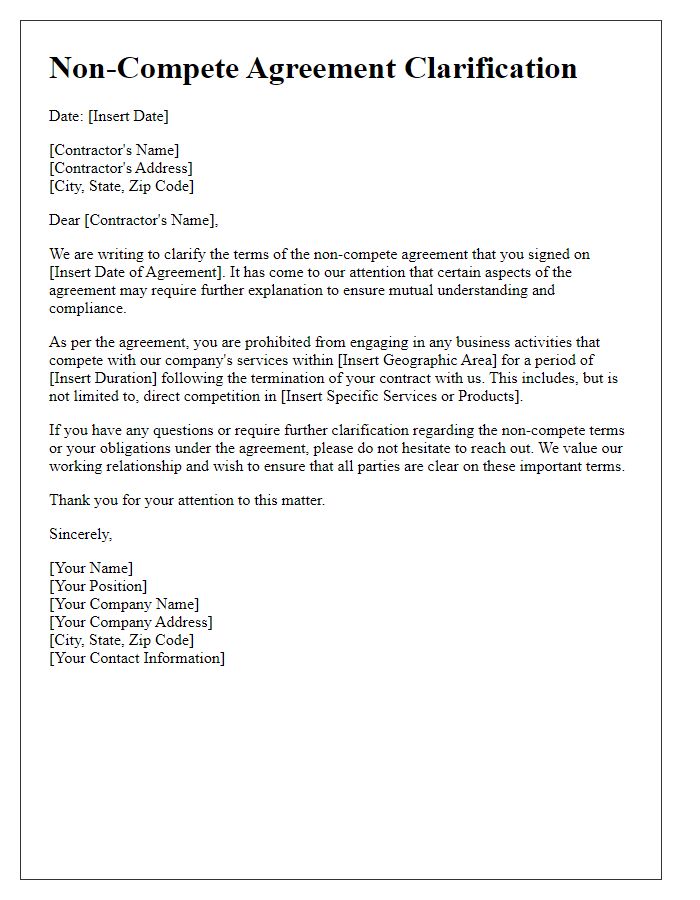
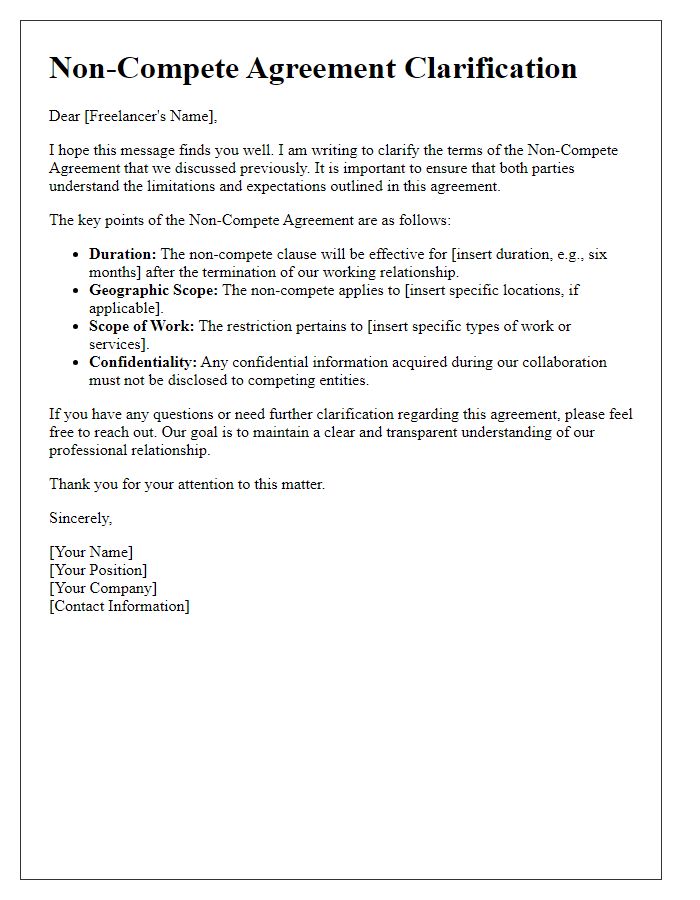
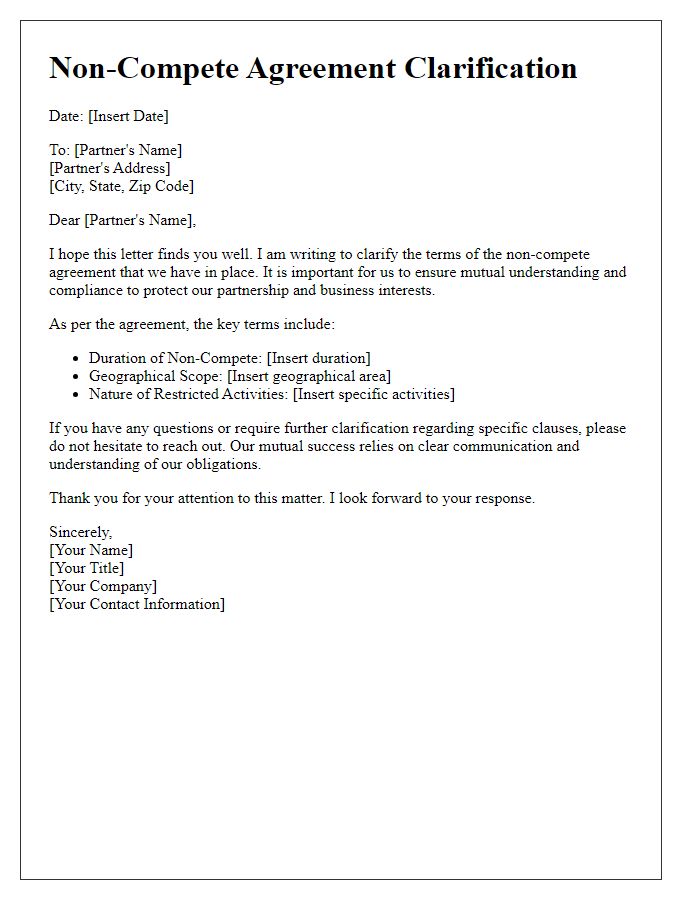
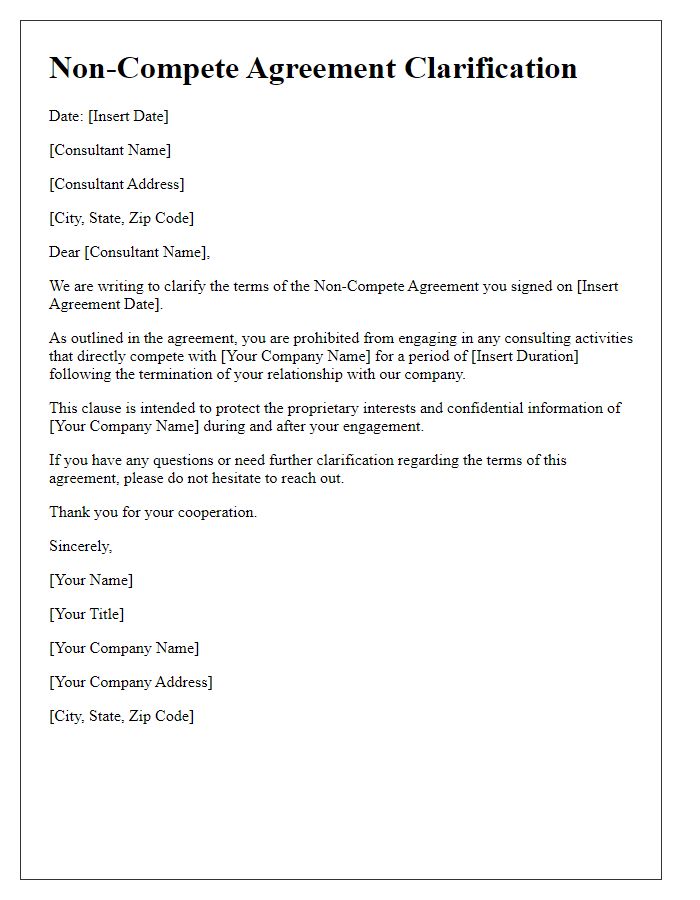
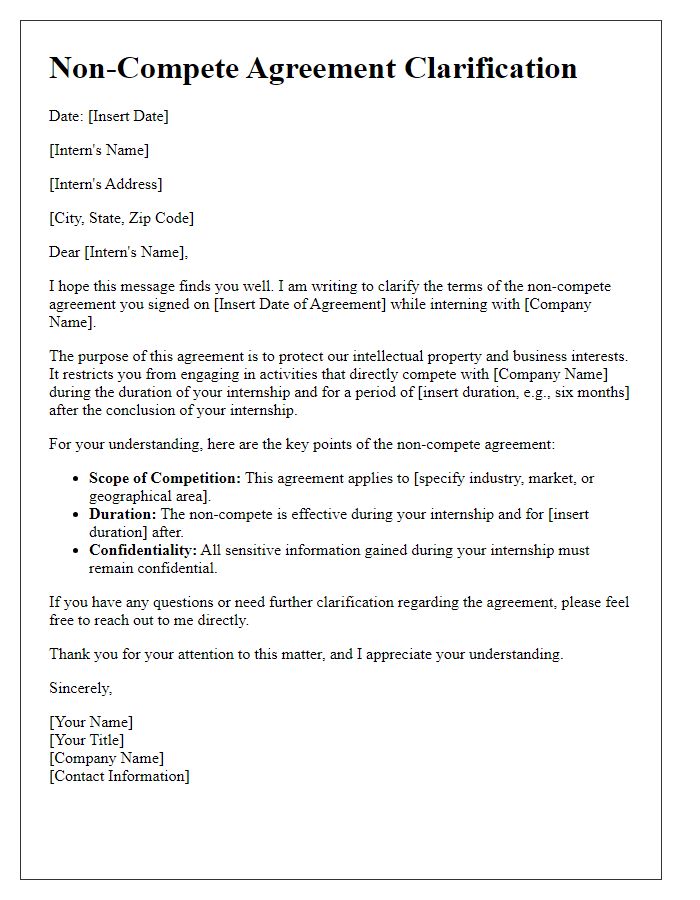
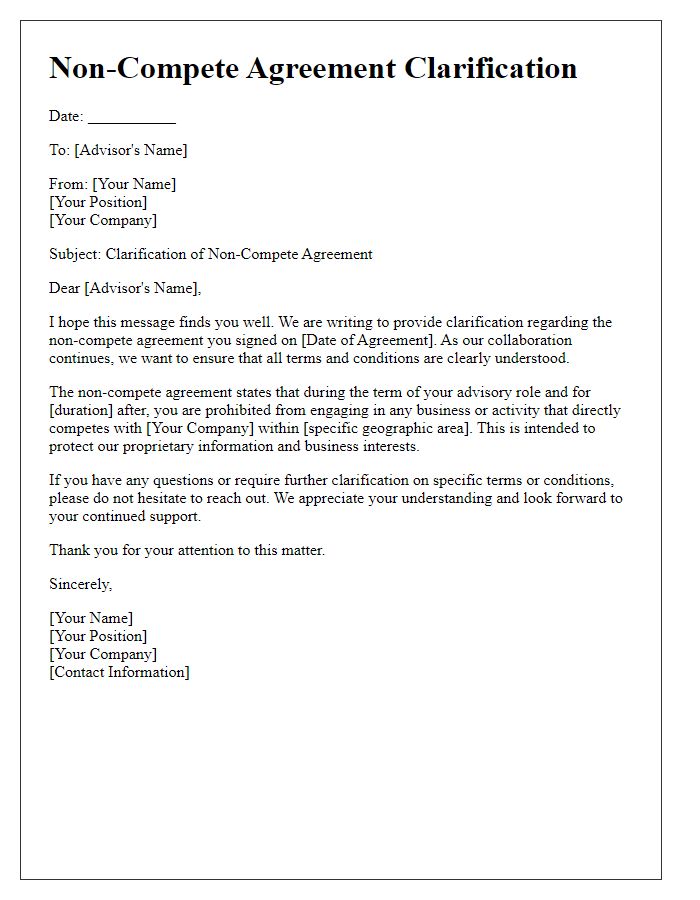
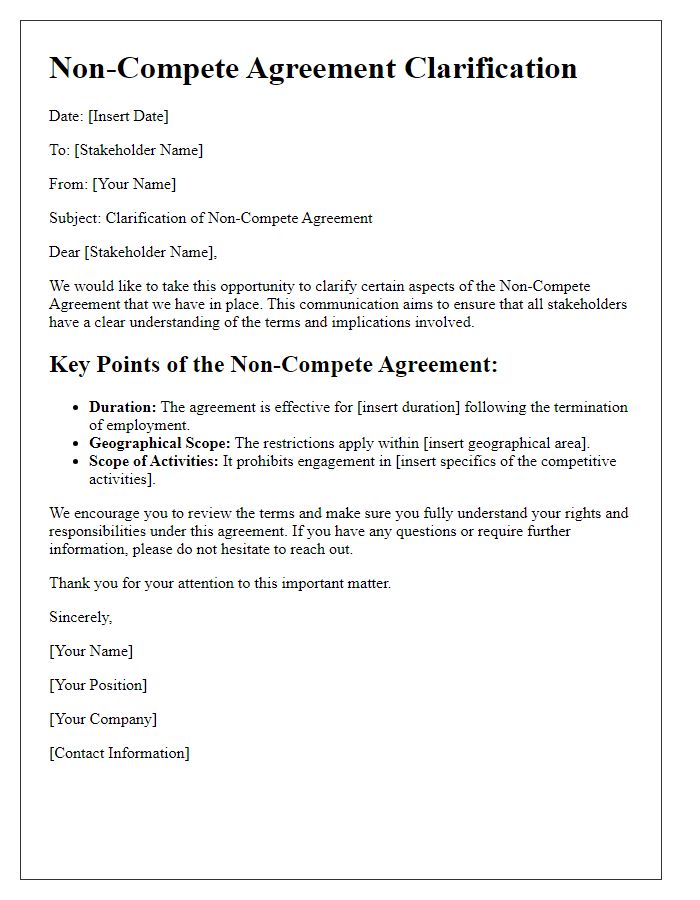


Comments